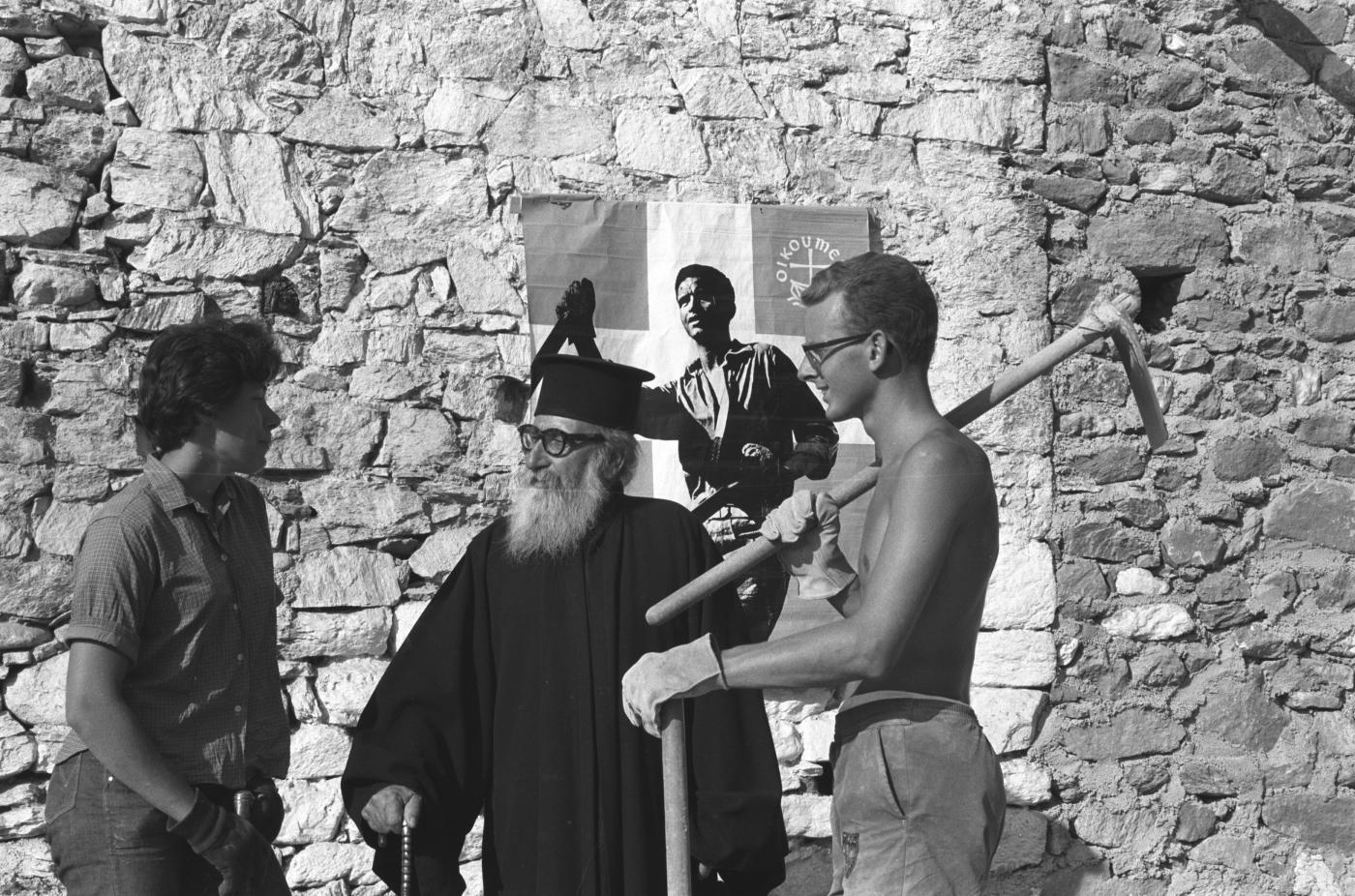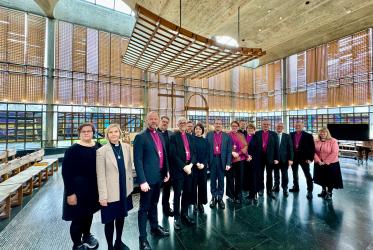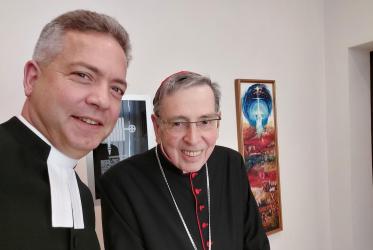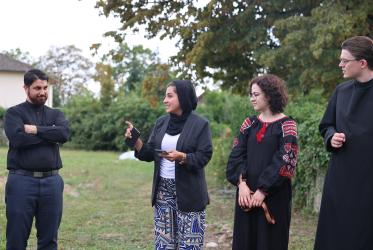In 2018 we celebrate the 70th anniversary of the World Council of Churches. In order to create a lively firsthand account of the ecumenical fellowship and of our shared journey, member churches have contributed stories of people, events, achievements and even failures, all of which have deepened our collective search for Christian unity.
This story was written by Dr Govaert Chr.Kok, a former member of the WCC Central Committee from the Old-Catholic Church of the Netherlands.
Any views or opinions expressed in this article are those of the authors, and do not necessarily reflect the policies of the World Council of Churches.
Thinking back I realise that I belong to a privileged generation, since I was able to participate already at a young age in the work of the World Council of Churches (WCC).
Each summer back then, in the late 1950s, what was the WCC’s youth department at the time – under the leadership of the young Philip Potter, the beginning of his long career at the WCC – organised around 45 international, ecumenical workcamps all around the world.
Students and other young people between the ages of 19 and 30 were able to participate in such a camp with a group of 20 to 30 other youngsters from different international, confessional and professional backgrounds. The purpose of these camps was to volunteer for 6 hours a day in projects of a local church or community.
Besides the work, however, the campers came together every day for prayer, Bible study and discussions to learn more about the way of worship, religious life and thinking of different churches and traditions. Last but not least, the campers were introduced to the many projects of the WCC at that time by one of the visiting secretaries from the youth department in Geneva
Orthodox hospitality in Greece
My first workcamp was in 1958 at Machairado, a small village on the Greek island of Zakynthos, which was seriously affected by an earthquake some years before. The task of the 25 campers (all unskilled labourers) was to assist in the reconstruction of the water supply system for the village and the digging of the necessary new trenches for waterpipes in the rocky soil. The villagers joined us enthusiastically in the work, and often invited us afterwards for a glass of Greek retsina wine or a typical Greek meal.
Our host was the young Orthodox Bishop Alexis of Zante, who visited us many times and also welcomed us in his cathedral for Sunday worship. The richness of the Orthodox liturgy, unknown to most campers from outside Greece, was a great experience. Each morning and evening we had prayer services in a small Orthodox chapel with many icons in the village. Each of the campers in succession brought something in from his or her own tradition and country, which often gave rise to questions and discussion afterwards with the campers and villagers who attended.
Workcamp secretary Ralph Weltge from Geneva and Christopher King and Phyllis Saunders, both from the WCC office in Athens, visited us and told us a lot about the work of the WCC worldwide, as well as the work supporting refugees and reconstruction in Greece after the Second World War and the bloody civil war with the communists that followed. After the camp, I was able to travel with a friend a bit more in Greece and visit Mount Athos and some of its centuries-old Greek and Russian monasteries, an unforgettable experience.
Special memories in Finland
The workcamp in Finland in 1959 started as the one the year before did – with a long journey by train and boat (students did not travel by air in those years). The camp was situated in Teiniharju near Punkasalmi in a beautiful lake district in the forests near the Russian border, where we built a wooden chapel for around 80 people in the conference and camping village of the Finnish Student Christian Movement. The labour of building was new to most of us, but Mr Kupiainen, an old professional master carpenter, taught us how to do the work.
The majority of Finland belongs to the Lutheran church, but Finland has also a much smaller Orthodox Church. We were able to participate in services of both traditions in the city of Joensuu. As we did in Greece, we started and finished each day with a short, open-air service at the campsite and on the last day we were able to come together in our nearly finished chapel.
During the weekends, we visited different congregations in the neighbourhood and attended a big, open-air missionary event in the forest organised by different local churches, where we learned more about church life in the Finnish Lutheran tradition. We also had an opportunity to see by boat something more of the beautiful surroundings of our camp and to visit the old castle of Savonlinna.
The introduction to the work of the WCC was done by Veronique Lauffer from the youth department in Geneva, who was also able to inform us about the modern ecumenical, monastic community of Taize and its female counterpart, the community of Grandchamp, which she had joined some years before.
The camp also has another, very special point of remembrance for me: there I met my future wife Grete Frimer-Larsen, who was at that time training as a nurse at the Diakonessenhuset Sankt Lukas Stiftelsen in Copenhagen.
In later years, both in my professional life as a lawyer and as a participant in many ecumenical governance meetings, especially in the WCC Central Committee where I served from 1983 to 1991, I often recalled the way and spirit in which we worked together in the workcamps.
The daily manual work brought us nearer to each other, and the differences between us – nationality, church and tradition – disappeared. It seemed possible to solve all the problems of church and society just by working together for a common goal. An experience for life!
More information about 70 years of the WCC
Read more WCC 70th anniversary stories
If you would like to tell your own story, please be in touch!






